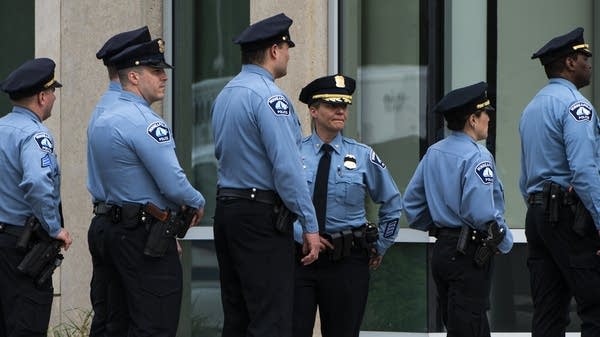Here's who could oversee MPD's court-enforced settlement agreement

Members of the Minneapolis Police Department stand outside in 2023. The city of Minneapolis is hosting meetings this week featuring three finalists to oversee the city’s court-enforced settlement agreement on policing.
Stephen Maturen for MPR News | 2023
Go Deeper.
Create an account or log in to save stories.
Like this?
Thanks for liking this story! We have added it to a list of your favorite stories.


